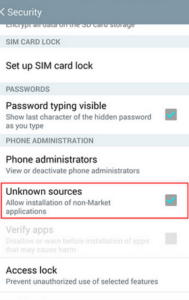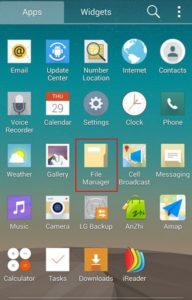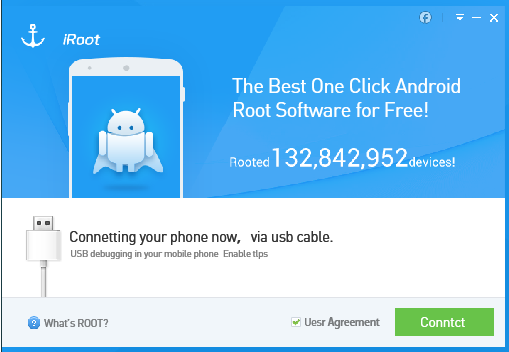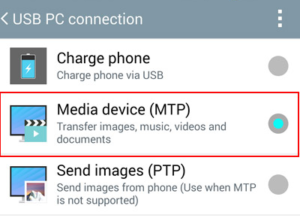How To Root Singtech P240
Rooting the Android Device always provides the enhanced features to any phone. You can get rid of the irritating or useless pre-installed applications, advertisement, mute notifications etc. All you need to do to get these enhanced features is that the Singtech P240 must be rooted “successfully”. Why am I highlighting the term?! Yes, because successful rooting is the important thing. One wrong move, you will have a device bricked in your hand. Read More : Stock ROM Vs Custom ROM
Today, I’m going to guide you through the detailed steps to follow to root your Singtech P240 device. But, rooting your device right way,
I want you to know some things which are really important.
- It can affect the warranty, since the warranty gets void for rooted devices.
- A wrong step in not following this guide properly might brick your LG.
- And sometimes, Rooting might also result in affecting battery health. So, if you are too conscious about battery health, then I would not recommend this to you.
- Read More: Enable OTG support for your Device
There are different Singtech P240 available and you can root them with below apps and Software.
- Singtech P240 with stump root. (Recommend Android 4.4 and earlier)
- Singtech P240 with iRoot
- Singtech P240 with OneClick Root
I’m going to provide detailed solution for each of these different category devices.
Steps to root Singtech P240 with Stump root
These steps are for the devices with Android versions 4.4 and earlier. Usually these devices were manufactured and rolled down in to the market from 2012 to 2014.
Step 1:
Settings -> Security -> Unknown sources, Allow your phone to install non-market applications. You don’t have to get scared. This is just for installing Stump root APK, which is must for rooting. Read More : Ad IR Sensor for your phone – TV Remote.

Step 2:
After completing the step 1, download the stump root APK application on your Singtech P240.
Step 3:
Go to file manager on your phone and find the stump root file and install the application. See the Download Folder

Step 4 :
open the application and click on “grind” option.

Step 5:
Wait for some time as the process takes some time to complete, and then reboot your Singtech P240 and it should work successfully.
Step 6,
you can make sure that your phone rooted or not using these simple tips.. If there is a App Called “SuperSu” then your phone is Rooted. If you have doubt again? then use This App. it will tell you whether or not the phone has root access.
Root Singtech P240 Phone with iRoot (Android 5 and above)
Step 1:
- Enable the USB Debugging
- Download and install iRoot on your computer. Connect your Singtech P240 which is yet to be rooted to your computer through USB. Run the program.

Step 2:
you will get a screen shown below when the device is connected to the computer. This will enable the device for rooting.

Step 3:
Click on the Root option and wait for some time. Reboot your Singtech P240 once done, and it should work smoothly.
Root Singtech P240 Phone with LG OneClick Root
Some times does not support iRoot or stump root. In such cases this type of rooting comes in handy.
Step 1:
Connect the Singtech P240 to be rooted to the computer. Drag the notification window down. Select Media device. This should work successfully, if not, then switch to PTP mode. This step is to enable the USB Debugging on your LG Device.

Step 2:
Download and Install Singtech P240 drivers on your computer.
Step 3:
Download Singtech P240 OneClick Root. Decompress the file and install the software on your computer.
Step 4:
Click on start option to root the device. Wait for some time for the process to complete. Reboot your Singtech P240 once done.

Congratulations on rooting your Singtech P240 successfully! Read More:I have rooted my phone. Now what is Next?
Check If Singtech P240 Is Rooted Properly
you can make sure that your phone rooted or not using these simple tips.. If there is a App Called “SuperSu” then your phone is Rooted. If you have doubt again? then use This App. it will tell you whether or not the phone has root access.
Fix “Unfortunately, Stump has Stopped” Error
This is not related to Rooting process. This is a error of your phone’s cache. So you have to delete those caches. then this problem will be settle.
- Reboot/Restart your phone. works?
- Delete/erase cache and data in kinguser.
Su binary needs to be updated Singtech P240
First of all Full unroot your device and remove roots apps and restart the phone. follow this guide line step by step with new files.
I Can not OTA update after rooting?
After you rooted your phone, then you can’t get update automatically. If you want? then go to this link
After root some of Features Not working properly
Q : I rooted my phone and Now, WiFi, Mobile data, Bluetooth, sensors, keyboard, speakers,MIC, Host-spot and GPS does not work properly.
A : It seems, Something gone Wrong. When we are rooting these kind of things may happen. All you have to do is Install Stock Rom and then again try to root your device.
I Can Not Root My Singtech P240
Kingroot is always updating application. some times your device is not supported by app.. However, If you are still unable to root your phone, You have two options. one is, try root manually or use different Root app – Best Apps that support any phone
Singtech P240 stuck at boot, continuously restarts,
Your Stock Rom image or Custom image has been damaged so you have to install Stock Rom or Custom Rom again. Is Sound big? Don’t worry we have step by step dedicated Posts here.
We are the dedicated site for Rooting android phones. this is our dedicated post for Singtech P240 . IF you think this post is useful then please share this post on all Social medias and help others to root their phones with rootdroids. If you have any problem feel free to leave a comment below, then we can help you.
Equipped with a Bachelor of Information Technology (BIT) degree, Lucas Noah stands out in the digital content creation landscape. His current roles at Creative Outrank LLC and Oceana Express LLC showcase his ability to turn complex technology topics into engaging, easy-to-understand content for their websites.
Lucas specializes in writing technology guides. His work is distinguished by its clarity and relevance, making daunting tech subjects accessible and interesting to a broad audience. His guides are not just informative but are a testament to his skill in bridging the gap between technical expertise and everyday usability.
In addition to his tech-focused articles, Lucas has a keen eye for capturing the essence of his surroundings. His writing transcends technology, as he effortlessly brings to life various observations and experiences in his articles. This versatility not only demonstrates his wide-ranging interests but also his ability to connect with readers on multiple levels.
Lucas Noah’s writing is a fusion of technical acumen and a deep appreciation for the world around him, offering readers a unique and insightful perspective on both technology and life.

